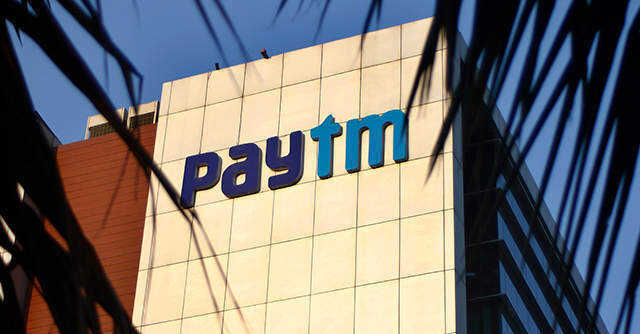
Paytm IPO: One97’s tech journey – from mobile wallet to AI lab, cloud services


The Paytm IPO is upon us, and with one of India’s poster boys of the digital finance sector going public, this sums up an interesting journey.
In essence, Paytm’s journey as the Paytm we know today began back in July 2009, which is when One97 launched the product that would catapult Vijay Shekhar Sharma to stardom in the Indian startup world.
Today, Paytm has a diversified range of services. Alongside its core online payment products, Paytm today operates a cloud computing platform, and over the past seven years, has also had Paytm Labs – an R&D division to build on AI, big data, ML and other new technologies for the Paytm tech stack.

On this note, here’s looking at the journey of Paytm – from a recharge and shopping platform, to an all-round financial and technological services company.
2009: The inception of Paytm
Paytm’s initial tech offering was largely centred around offering users a platform to do their recharges and also shop online using net banking or credit cards. The initial offering was to build an early ecommerce ecosystem, back when buying prepaid recharges online was still not a norm – and neither were online transactions.

2012: Paytm Payments Gateway
In a product that now falls under the Paytm for Business umbrella, the Paytm Payments Gateway was launched at a time when more websites were slowly catching on to the online sales trends. The Payments Gateway is an integrated payment window that business operators can apply to their websites to accept payments against products and services offered.
2014: Paytm Wallet and Paytm Labs

In a product that catapulted Paytm into widespread popularity, as well as making the company’s jingle and catchline ‘Paytm karo’ ubiquitous, One97 introduced its mobile wallet back in 2014. Paytm Wallet played its role in popularising the idea of carrying money in a digital wallet, transfer it to banks or to fellow users of wallets. Over time, the Paytm Wallet would give way to bigger business avenues – onboarding merchants to use the Paytm QR code to accept payments from users.
In 2014, the company’s first CEO, Harinder Takhar, helped it set up Paytm Labs in Toronto, Canada. The latter is the company’s research and development wing, and in its own words, offers “big data, artificial intelligence and machine learning to Paytm’s data assets, providing financial products to 333 million+ customers and 21 million+ merchants.”
2015: Paytm QR

The company expanded on the introduction of its Wallet in 2014, with QR payment codes with which it onboarded merchants. The company used its Paytm QR product to widely publicise its digitisation efforts of small, offline businesses.
2018: Paytm First Games
Three years ago, the company forayed into the field of fantasy sports and online gaming, with Paytm First Games. The service today offers a fantasy sports league format in cricket, among other sports and games, in an increasingly burgeoning sector in India.

2019: Paytm Cloud, all-in-one QR/PoS/Gateway
Two years ago, Paytm further diversified its services into cloud computing. The company pitched it as its own cloud computing offering for startups and developers in India, in a bid to bring its presence in the scalable cloud infrastructure space. In a launch blog, Paytm chief Sharma wrote, “Our made-in-India AI-powered cloud offers a suite of business-centric apps for organisations that need high-quality solutions for cloud computing, ready-to-use services to automate their workflow, easy to integrate payments, messaging and customer engagement without the hassle of managing hardware and software.”
At the same time, Paytm also increased its payment offerings to merchants and businesses – launching all-in-one QRs to integrate UPI payments, launching an all-in-one PoS service for businesses to accept card payments, and an all-in-one gateway for websites as well. It also launched its ‘Sound Box’, a payment receptor-cum-QR machine that it sourced to merchants.

2021: Cryptocurrencies and others
As it approaches its IPO, Paytm has recently spoken about supporting cryptocurrency investments on its platform, but only if India legalises it.
Paytm has also diversified its financial offerings, including a Paytm credit card line, as well as Paytm Insurance, to go beyond its technological offerings.
